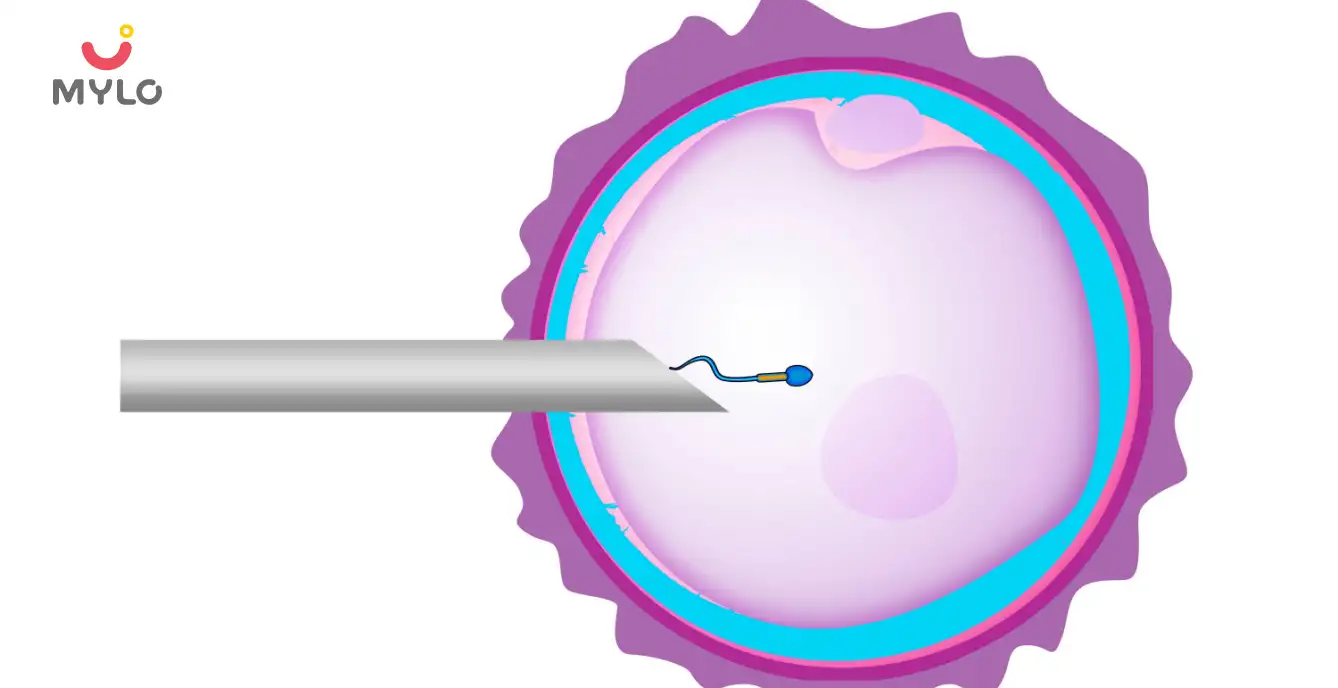- Home

- Breastfeeding & Lactation

- Exclusive Breastfeeding: Unlocking the Benefits of You and Your Baby
In this Article
Breastfeeding & Lactation
Exclusive Breastfeeding: Unlocking the Benefits of You and Your Baby
Updated on 13 July 2023
Among the countless decisions you will make as a new parent, one that holds immeasurable power and significance is saying yes to exclusive breastfeeding. It is nature's perfect recipe, tailored to meet the unique needs of your little one, providing optimal nutrition, immunity, and a myriad of other benefits that set the stage for a lifetime of health and well-being.
In this journey together, we will unleash the whole breastfeeding meaning, and the benefits of exclusive breastfeeding and explore how long it takes to exclusively breastfeed. Let's begin our remarkable journey of nurturing and nourishing the most precious gift life has given you - your beautiful baby.
Exclusive Breastfeeding Meaning
Exclusive breastfeeding refers to feeding an infant only breast milk, without additional liquids or solid foods, for the first six months of life. During this period, the baby receives all their nutritional needs solely from breast milk, which is the perfect and complete source of nutrition for their growing bodies.
Exclusive breastfeeding meaning goes beyond providing nutrition alone. Breast milk contains many bioactive components, including antibodies, enzymes, hormones, and growth factors that support the baby's immune system, protect against infections, and promote healthy development. It is designed by nature to perfectly meet each baby's specific needs, adjusting its composition to accommodate growth spurts, illness, and other factors.
What are the Benefits of Exclusive Breastfeeding for the Baby?
Exclusive breastfeeding offers a multitude of benefits for the baby. Here are some of the remarkable advantages:
1. Optimal Nutrition
Breast milk is a complete source of nutrition, perfectly tailored to meet the baby's needs.
2. Immune System Boost
Breast milk is rich in antibodies, immune cells, and other bioactive substances that help protect the baby against infections and diseases.
3. Digestive Health
Breast milk is easily digestible and gentle on the baby's developing digestive system. It reduces the risk of digestive issues like constipation, diarrhoea, and gastroenteritis.
4. Cognitive Development
Breast milk contains essential fatty acids, such as DHA (docosahexaenoic acid), critical for brain development and cognitive function.
5. Emotional Bonding
Breastfeeding fosters a deep emotional bond between the mother and baby.
6. Reduced Risk of Chronic Diseases
Benefits of exclusive breastfeeding includes a lower risk of various chronic conditions later in life, including obesity, type 2 diabetes, asthma, allergies, and certain childhood cancers.
What are the Benefits of Exclusive Breastfeeding for the mother?
Exclusive breastfeeding offers numerous benefits for the mother as well. Here are some of the advantages:
1. Faster Postpartum Recovery
Breastfeeding stimulates the release of hormones, such as oxytocin, which helps the uterus contract and return to its pre-pregnancy size.
2. Weight Loss
Breastfeeding burns extra calories, helping the mother lose pregnancy weight more effectively.
3. Reduced Risk of Breast and Ovarian Cancer
Studies have shown that breastfeeding, particularly long-term and exclusive breastfeeding, is associated with a reduced risk of breast and ovarian cancer in mothers.
4. Reduced Risk of Postpartum Depression
Breastfeeding promotes the release of hormones like oxytocin and prolactin, which stimulate feelings of relaxation and well-being.
5. Contraception
Exclusive breastfeeding can act as a natural form of contraception, known as the Lactational Amenorrhea Method (LAM). LAM provides temporary contraception by suppressing ovulation, although it requires specific criteria to be met for effectiveness.
6. Cost and Convenience
Breastfeeding is cost-effective, eliminating the need to purchase formula or feeding equipment.
7. Long-term Health Benefits
Breastfeeding has been associated with a reduced risk of certain mother health conditions, including type 2 diabetes, cardiovascular disease, and rheumatoid arthritis.
How Long to Exclusively Breastfeed?
The World Health Organization (WHO) recommends exclusive breastfeeding for the first six months of a baby's life. This means that during this period, the baby should receive only breast milk and no other liquids or solid foods, except for any medications or supplements recommended by a healthcare professional.
It's important to note that every baby is different, and individual needs may vary. Some babies may be ready for complementary foods a little earlier than six months, while others may need more time with exclusive breastfeeding.
Tips for Successful Exclusive Breastfeeding
Certainly! Here are some tips to help you have a successful exclusive breastfeeding journey:
1. Educate Yourself
Learn as much as you can about breastfeeding before your baby arrives. Attend breastfeeding classes, read books, and gather reliable information about latch techniques, positioning, milk production, and everyday challenges.
2. Establish Early Skin-to-Skin Contact
Skin-to-skin contact immediately after birth and in the early days promotes bonding and helps initiate breastfeeding.
3. Ensure a Proper Latch
A proper latch is crucial for effective breastfeeding. Ensure your baby takes in a good portion of the areola and the nipple and that their lips are flanged outward.
4. Feed on Demand
Breastfeed your baby whenever they show hunger cues, such as rooting, sucking on their hands, or making sucking noises. Newborns typically need to nurse frequently, at least 8-12 times in 24 hours.
5. Stay Patient and Persistent
Breastfeeding can sometimes be challenging, especially in the early days. Stay patient and persistent, seeking help when needed.
Overcoming Challenges of Exclusive Breastfeeding
Exclusive breastfeeding can come with its share of challenges, but many hurdles can be overcome with perseverance and support. Here are some common challenges of exclusive breastfeeding and tips to help you overcome them:
1. Latching Difficulties
If you're experiencing latching difficulties, seek assistance from a lactation consultant or breastfeeding specialist.
2. Sore Nipples
Sore nipples are a common concern in the early days of breastfeeding. Ensure a proper latch, and try different breastfeeding positions to find the most comfortable one. Applying lanolin cream or warm compresses can help soothe and heal sore nipples.
3. Engorgement
Engorgement occurs when breasts become overly full and uncomfortable. Frequent breastfeeding, gentle breast massage, warm compresses, and expressing a little milk by hand before feeding can help alleviate engorgement.
4. Low Milk Supply
If you're concerned about your milk supply, breastfeed frequently and effectively.
Exclusive Breastfeeding vs. Mixed Feeding
Exclusive breastfeeding and mixed feeding (also known as combination feeding) are two approaches to providing nutrition to infants. Let's explore the differences between the two:
Pros of Exclusive Breastfeeding
-
Ideal nutrition
-
Immune protection
-
Bonding
Cons of Exclusive Breastfeeding
-
Sole responsibility
-
Limited flexibility
Pros of Mixed Feeding
-
Flexibility
-
Nutritional supplementation
Cons of Mixed Feeding
-
Possible decrease in milk supply
-
Different digestion
-
Potential nipple confusion
Final Thoughts
In conclusion, exclusive breastfeeding is a powerful and invaluable gift that mothers can give to their babies. Benefits of exclusive breastfeeding extend beyond providing essential nutrition and immune protection. While breastfeeding exclusively for the first six months is recommended, it's necessary to recognize that every mother's journey is unique. Mixed feeding or transitioning to solid foods may be appropriate in certain situations, and individual circumstances should be considered.
References
1. Hossain, M., Islam, A., Kamarul, T., & Hossain, G. (2018). Exclusive breastfeeding practice during first six months of an infant's life in Bangladesh: a country based cross-sectional study.
2. Sisay Yimer, D., Seid Adem, O., Arefayene, M., Chanie, T., & Linger Endalifer, M. (2021). Exclusive breastfeeding practice and its associated factors among children aged 6-23 months in Woldia Town, Northwest Ethiopia. African Health Sciences



Written by
Madhavi Gupta
Dr. Madhavi Gupta is an accomplished Ayurvedic doctor specializing in Medical content writing with an experience of over 10 years.
Read MoreGet baby's diet chart, and growth tips

Related Articles
How Respiratory Syncytial Virus (RSV) Impacts Premature Babies Differently: What Every Parent Needs To Know
Adverbs: A Comprehensive Guide to help small children learn the usage of adverbs
Expand Your Child's Vocabulary with words that start with X: Easy, Positive, and Engaging Words, Animals, Countries, and Fruits
Unlocking Language Proficiency: The Ultimate Guide to Top 100 Sight Words for Kindergarten and Beyond
Related Questions
Hello frnds..still no pain...doctor said head fix nhi hua hai..bt vagina me pain hai aur back pain bhi... anyone having same issues??

Kon kon c chije aisi hai jo pregnancy mei gas acidity jalan karti hain... Koi btayega plz bcz mujhe aksar khane ke baad hi samagh aata hai ki is chij se gas acidity jalan ho gyi hai. Please share your knowledge

I am 13 week pregnancy. Anyone having Storione-xt tablet. It better to have morning or night ???

Hlo to be moms....i hv a query...in my 9.5 wk i feel body joint pain like in ankle, knee, wrist, shoulder, toes....pain intensity is high...i cnt sleep....what should i do pls help....cn i cosult my doc.

Influenza and boostrix injection kisiko laga hai kya 8 month pregnancy me and q lagta hai ye plz reply me

Related Topics
RECENTLY PUBLISHED ARTICLES
our most recent articles

Brain Development
Role of Stories and Rhymes in Your Baby’s Brain Development

Baby Weaning
How to Wean Off Breastfeeding: The Ultimate Guide for New Moms

Male Infertility
Intracytoplasmic Sperm Injection (ICSI) How It Can Help Treat Male Infertility

Breastfeeding & Lactation
Baby Sleeping While Breastfeeding: Understanding the Causes and Solutions

Cold & Cough
Home Remedies for Cold During Breastfeeding: How to Keep Both Mom and Baby Healthy

Breast Lump
Lump in Breast During Breastfeeding How to Identify, Treat, and Prevent Lump Formation
- Understanding Down Syndrome: A Comprehensive Guide for Parents
- No Breast Milk After Delivery: What to Do & What are the Factors Responsible
- Lactation Failure: A Comprehensive Guide to Understanding the Causes and Solutions
- Breast Pain During Pregnancy: What to Expect and How to Find Relief
- Baby Spit Up: The Ultimate Guide to Causes, Prevention, and Management
- Unexplained Infertility: Breaking Down the Factors and Finding Solutions
- Mulethi: Unraveling the Therapeutic Potential of Licorice Root for Your Overall Health
- 5 Steps to a Healthy Lifestyle: The Blueprint for Your Wellness Journey
- Chandraprabha Vati: How This Potent Ayurvedic Formulation Can Boost Your Health
- Trichomoniasis: Meaning, Symptoms, Causes and Risks
- Gallstones in Pregnancy: Symptoms, Complications & Treatment
- Fertility Massage: A Holistic Approach to Boosting Fertility Your Chances of Conception
- Baby Vomiting After Feeding: Understanding the Causes and Solutions for Upset Stomach
- Why do you need to wear a high waisted panty during pregnancy?


AWARDS AND RECOGNITION
Mylo wins Forbes D2C Disruptor award
Mylo wins The Economic Times Promising Brands 2022
AS SEEN IN
















At Mylo, we help young parents raise happy and healthy families with our innovative new-age solutions:
- Mylo Care: Effective and science-backed personal care and wellness solutions for a joyful you.
- Mylo Baby: Science-backed, gentle and effective personal care & hygiene range for your little one.
- Mylo Community: Trusted and empathetic community of 10mn+ parents and experts.
Product Categories
baby carrier | baby soap | baby wipes | stretch marks cream | baby cream | baby shampoo | baby massage oil | baby hair oil | stretch marks oil | baby body wash | baby powder | baby lotion | diaper rash cream | newborn diapers | teether | baby kajal | baby diapers | cloth diapers |





